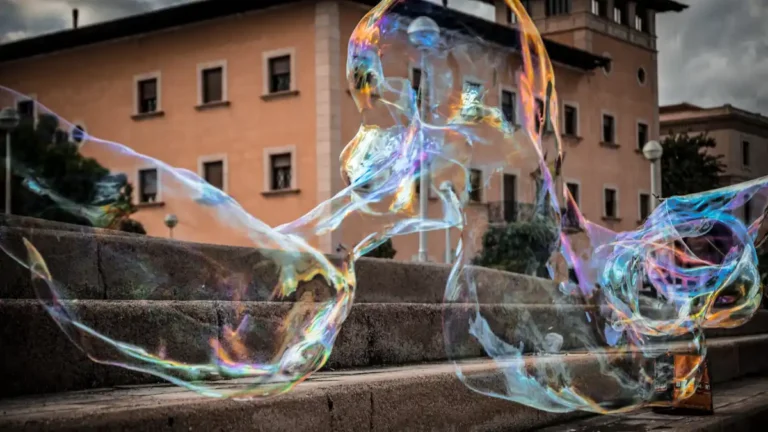How the world mistook a time bomb for a trade partner
On October 10th, 2000, President Bill Clinton signed the United States–China Relations Act into law. It was the soggy full stop on a long, meandering sentence that had begun in 1980, when the People’s Republic was first granted Most Favoured Nation status—initially for a single trial year. A foot in the door. By 2000, the door was not just open; it was off its hinges. Permanent MFN status meant the end of the yearly certification charade—a flimsy ritual that at least gave the West a stage on which to express theatrical concern over human rights and totalitarian theatre in China. That stage was dismantled with a smile and a handshake.
The Act was also the velvet carpet rolled out for China’s accession to the World Trade Organization. In a single stroke, China went from geopolitical weirdo to star guest at the neoliberal banquet. A once-isolated empire of bureaucrats and bootcrushers was now courted, feted, and described in glowing terms by the same people who, a decade earlier, were choking on indignation over the flattened bodies in Tiananmen.
I was living in Paris at the time. If there’s one city where weirdness wears designer labels, it’s Paris. I knew a thing or two about being the odd one out. I didn’t speak French, had no high school diploma, and had the gall to enroll in law school anyway. The other students were younger, smoother, more at home in the bourgeois rituals of academia. I was the misfit with calluses and scars. That gave me certain advantages—the kind that come from living in the world instead of studying it—but it also marked me as suspect. In the end, it’s always the weirdos who get pushed to the margins.
Except, apparently, for China. China could be as bizarre, brutal, and unapologetic as it liked, and still be showered with praise. It was as if we were all hypnotized by the glittering possibility of a new Eden. The dragon would be tamed by trade, fattened by capital, and rendered docile by wealth. A fairytale told by central bankers to their grandchildren.
But I’d heard this song before. I was almost a decade older than my classmates and had lived through the fall of the Iron Curtain—not as a child, but as a man. I’d served in the military. I had watched the myth of the red bear collapse in real time. One day it was glorious Soviet strength, the next it was a chain-smoking drunkard offering Soviet trinkets at a flea market. I had seen the corpse twitch, and I had seen how quickly the same pundits who mourned the bear turned to worship the dragon. It was the same game with a new mask. Another red Ponzi scheme dressed up in dragon silk.
So when the debate raged in the U.S. Congress over permanent MFN status, I hoped—quietly, futilely—that America wouldn’t fall for it. But of course it did. Because cheaters cheat when you let them. And this was the mother of all invitations. A blank check for exploitation. For American multinationals, it was a chance to suck labor costs dry and skirt environmental laws. For Chinese elites, it was the green light to grind their own citizens into iPhone parts and concrete blocks while buying up yachts, vineyards, and London penthouses. A perfect partnership of predators.
Those were the simple days, when the grift was still elegant. But I could already see what was coming.
In 1980, China was a beggar with a busted bicycle and a Mao suit. It couldn’t choose. It took what it was given. But as the trade bloated, so did a dependency—on both sides. American corporations grew drunk on Chinese labor. The fear of disruption—of “decoupling”—became a paranoia, a fever dream. And the Chinese leadership, keen readers of desperation, smelled that fear like blood in the water.
What began as humility metastasized into swagger. Superiority festered, then strutted. They started sniffing their own ideological farts, and the Western intelligentsia followed suit, inhaling deeply. We were told, repeatedly and with increasing smugness, that open trade would civilize China. That wealth breeds moderation, fatness leads to contentment, and prosperity makes dictators mellow. This was the central dogma of the Church of Globalization.
Instead, the opposite happened.
China became bolder. Hungrier. Drunk not only on trade surpluses but on centuries-old fantasies of imperial restoration. The very name they use—Zhonghua—means “central brilliance,” or more literally, “the empire of the middle.” And in that middle, of course, sits China: the center of all things. Everyone else is a bit player in a grand production starring them. Empires may fall, but delusions of grandeur have no expiry date.
It was obvious to me in 2000. I was not alone, but we were few. Most were too busy counting future cash to care where it came from. Print “Made in China” on it and watch it rain money. The ethics were optional. The future? An afterthought.
Until the money stopped. Or rather, until the cost of keeping the illusion alive became too high.
Today, China is no longer a goldmine. It’s a time bomb. And when it blows, it won’t just level the neighborhood—it’ll flatten the global economy. The Red Ponzi is wheezing. Real estate is an open grave. Youth unemployment is censored because it’s so grotesque it no longer fits on a spreadsheet. Local governments are overleveraged zombies. And the only thing rising faster than the debt is the nationalism.
Just for the record: I’m no insider. I don’t have secret cables or lunch with China analysts. All I have is a decades-old habit of dealing with the world as it is, not as the professional optimists want it to be. I watch, I remember, and I don’t kid myself. That’s already more than most of the loudest voices in this space can say.
We fell for the glitter, again. We always do.
And we always have. Speculative bubbles are as old as organized society. The first well-documented one—tulip mania—took off almost 400 years ago during the Dutch Golden Age and reached peak absurdity in 1637. But that wasn’t the first. It was simply the first with surviving financial paperwork.
People have been chasing effortless returns ever since we figured out how to trade anything for anything. Rome’s late Republic saw real estate prices spiral into absurdity. Even grain hoarding in ancient Egypt wasn’t always about survival—sometimes it was pure speculation, waiting for future profits with no real threat in sight. That’s not strategy. That’s bubblenomics.
The reason most ancient bubbles don’t make the textbooks is simple: the data’s gone, the ledgers burned, and the economies back then were crude—essentials plus a bit of luxury. Sophisticated derivatives didn’t exist, or existed in forms so primitive they’d make a modern banker cry.
Our tools changed. Our science changed. Our ability to simulate and abstract changed. But we didn’t. We’re still the same skittish, credulous cavemen dressed in polyester and PowerPoint. Say “unicorn startup” or “revolutionary AI” and watch entire economies hold their breath.
Look around. We’re still obsessed with the supernatural. Just flip through the endless slurry of TV shows about ghosts, miracles, aliens, time travel, cults, and wishful nonsense. We wish—so it must be.
And even if we lack hard financial data from the Bronze Age, we still know that the ancients were onto this problem. What, after all, is the story of Odysseus and the sirens if not a metaphor for resisting the shimmering lie you know will kill you? That tale is 2,800 years old. Human nature hasn’t evolved since.
Or go back to Troy. The horse. The glittering gift. The story that felt too good to be false. One skeptical voice could have spared them the slaughter. But nobody wanted to hear it. The lie was too sweet. The outcome, inevitable.
We don’t even need Homer to make the case. Around the same time China was ushered into the WTO, the dot-com bubble hit the wall. Timing coincidence? Perhaps. But it’s as if the global economy, deprived of one hallucination, immediately found another. We can’t not believe. Bubblenomics isn’t an anomaly. It’s the baseline. The drug we all keep taking.
China saw that flaw. Exploited it. Weaponized it. And to be fair, so did we—we just do it inwardly. We no longer exploit cheap lands or fresh frontiers. So we mine our own guts, inflate our own bubbles, and sell dreams to ourselves until the mirror cracks.
China’s population is just as prone to superstition, delusion, and propaganda as ours. But their leadership controls it—or rides it. They bottle the madness and spray it where they want. In the West, we let it slosh around and pretend it’s freedom.
For the reader still here—none of this is news. You’ve already stopped sniffing the glue. We’re a small club. And we don’t change outcomes.
But we do get to see clearly. We get to prepare. We get to watch the balloon stretch to its limit and smile when it bursts. Not with malice—but with that quiet, grim satisfaction that only comes from being right too early.
A soft, triumphant “Told you so.”





Thanks as ever, Rudolf!
Rudolf, once again, thank you. I am totally aligned to your proposition. As well, we could spend time on the not-discussed fixed exchange rate, asset purchases, and why one-belt-one-road exists but we won’t.
Instead, I will note your second last paragraph struck a chord, not because I was pleased to have received a compliment, but because of how true it is. It takes time and effort to understand simple systems let alone complex ones – few make the time for either.
PS: the paragraph describing your study in France is a reminder, independent learning is of untold value.
Those who make time and take the effort benefit in many ways.